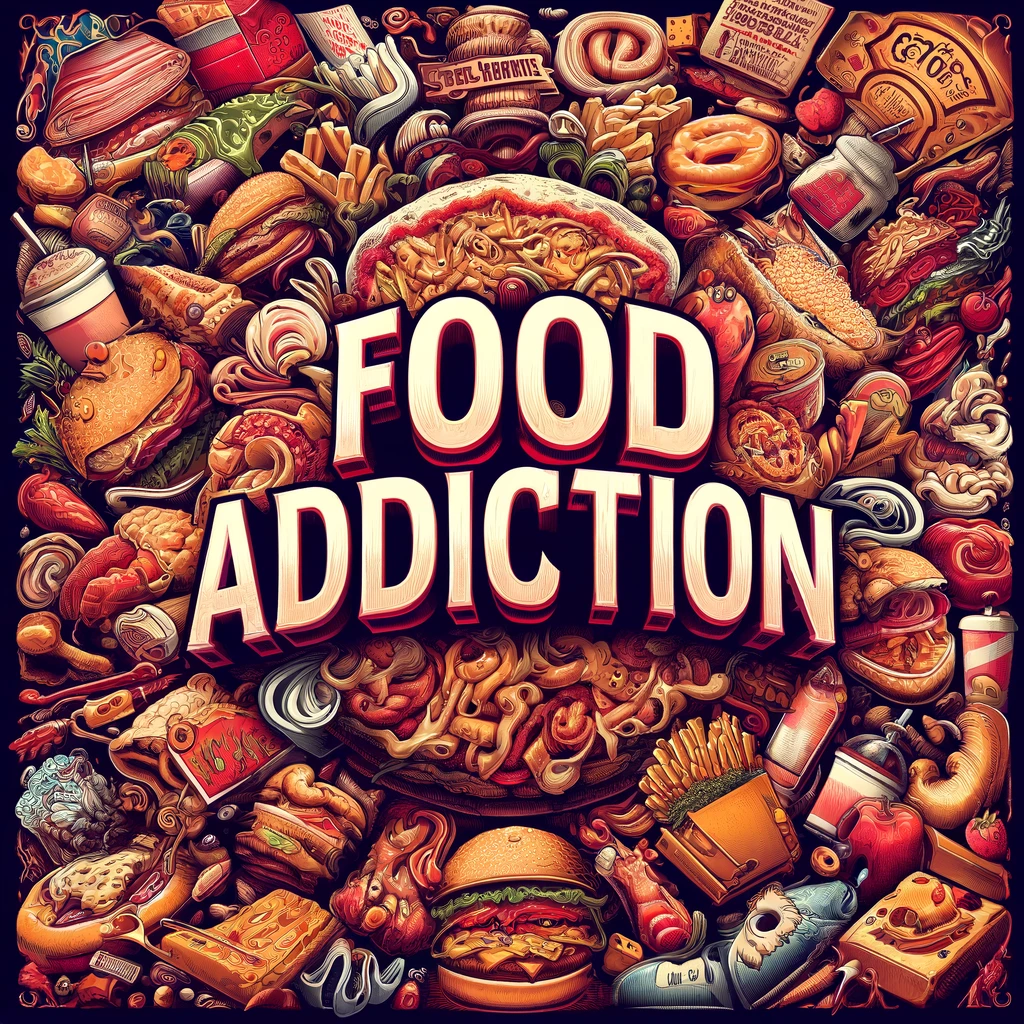Are you caught in the endless loop of dieting, weight loss, and subsequent weight gain? Do you find yourself reaching for comfort food when emotions run high or stress takes over? It’s time to have an honest conversation about food addiction and the crucial role it plays in your journey to better health.
In this article, we’ll explore the signs of food addiction, why it happens, and how you can break free from its grip. If you’re ready to achieve sustainable transformations in your mental, emotional, spiritual, and physical well-being, keep reading.
The Dieting Dilemma
Many of us have been on the relentless rollercoaster of dieting. We start strong, fueled by determination and the promise of a better tomorrow. But as the days turn into weeks and months, our resolve often crumbles. We slip back into old habits, lose the progress we’ve made, and find ourselves back at square one.
Why does this happen? Often, it’s because we’re not just battling our cravings; we’re fighting an addiction.
Recognizing Food Addiction
- Emotional Eating: One of the most common signs of food addiction is turning to food for comfort. Stress, sadness, anger, or even boredom triggers an overwhelming urge to eat, usually unhealthy, calorie-dense foods.
- Loss of Control: You often find yourself unable to stop eating once you’ve started, even when you’re no longer hungry. It’s like an invisible force takes over, and you can’t resist.
- Cravings: Frequent and intense cravings for specific foods, often high in sugar, salt, or unhealthy fats, are a red flag. These cravings feel like an itch that must be scratched.
- Hiding or Sneaking Food: Do you eat in secret or hide food wrappers to conceal your consumption? This behavior often indicates shame or guilt around eating habits.
- Ignoring Consequences: You’re fully aware of the negative consequences of overeating, but you do it anyway. It’s as if the need to eat overrides rational thinking.
Why Food Addiction Occurs
Understanding why food addiction happens is essential for breaking free from its grip. Food, particularly high-sugar and high-fat options, can trigger the release of dopamine in your brain. This “feel-good” neurotransmitter creates a sense of pleasure and reward, making you crave that feeling repeatedly.
Over time, your brain may become desensitized to dopamine, requiring more and more of the addictive substance – in this case, certain foods – to achieve the same level of pleasure. This creates a vicious cycle of addiction that can be incredibly challenging to break.
The Role of a Nutrition Coach
If you’re battling food addiction, you don’t have to do it alone. A nutrition coach can be a valuable ally on your journey to recovery. They provide:
- Expert Guidance: Nutrition coaches have the knowledge and experience to help you make healthier food choices and create sustainable meal plans.
- Accountability: Having someone to answer to can be a powerful motivator. A coach can help you stay on track and resist cravings.
- Emotional Support: Breaking free from food addiction isn’t just about changing your diet; it’s about addressing the underlying emotional triggers. A coach can offer guidance and support in managing these emotions.
Breaking Free from Food Addiction
So, what can you do to overcome food addiction and achieve lasting transformations?
- Seek Professional Help: Consider working with a nutrition coach or therapist who specializes in food addiction. They can provide tailored strategies and support.
- Mindful Eating: Practice mindfulness while eating. Pay attention to the tastes, textures, and feelings associated with each bite. This can help you regain control over your eating habits.
- Identify Triggers: Keep a journal to track when and why you experience cravings. Identifying triggers is the first step in managing them.
- Healthy Alternatives: Substitute addictive foods with healthier options that still satisfy your cravings. For example, swap out sugary snacks for fresh fruit.
- Build a Support System: Share your journey with friends or family who can provide encouragement and understanding.
- Stay Consistent: Breaking free from food addiction takes time and effort. Don’t get discouraged by setbacks. Keep pushing forward.
Identifying and addressing food addiction is a crucial step toward achieving your weight loss and overall wellness goals. Remember, you’re not alone in this journey, and there is support available to help you break free from the cycle of addiction.
With the guidance of a nutrition coach, the power of mindful eating, and a strong support system, you can regain control over your relationship with food and embark on a path to lasting transformation. Say goodbye to diets and hello to a healthier, happier you.


